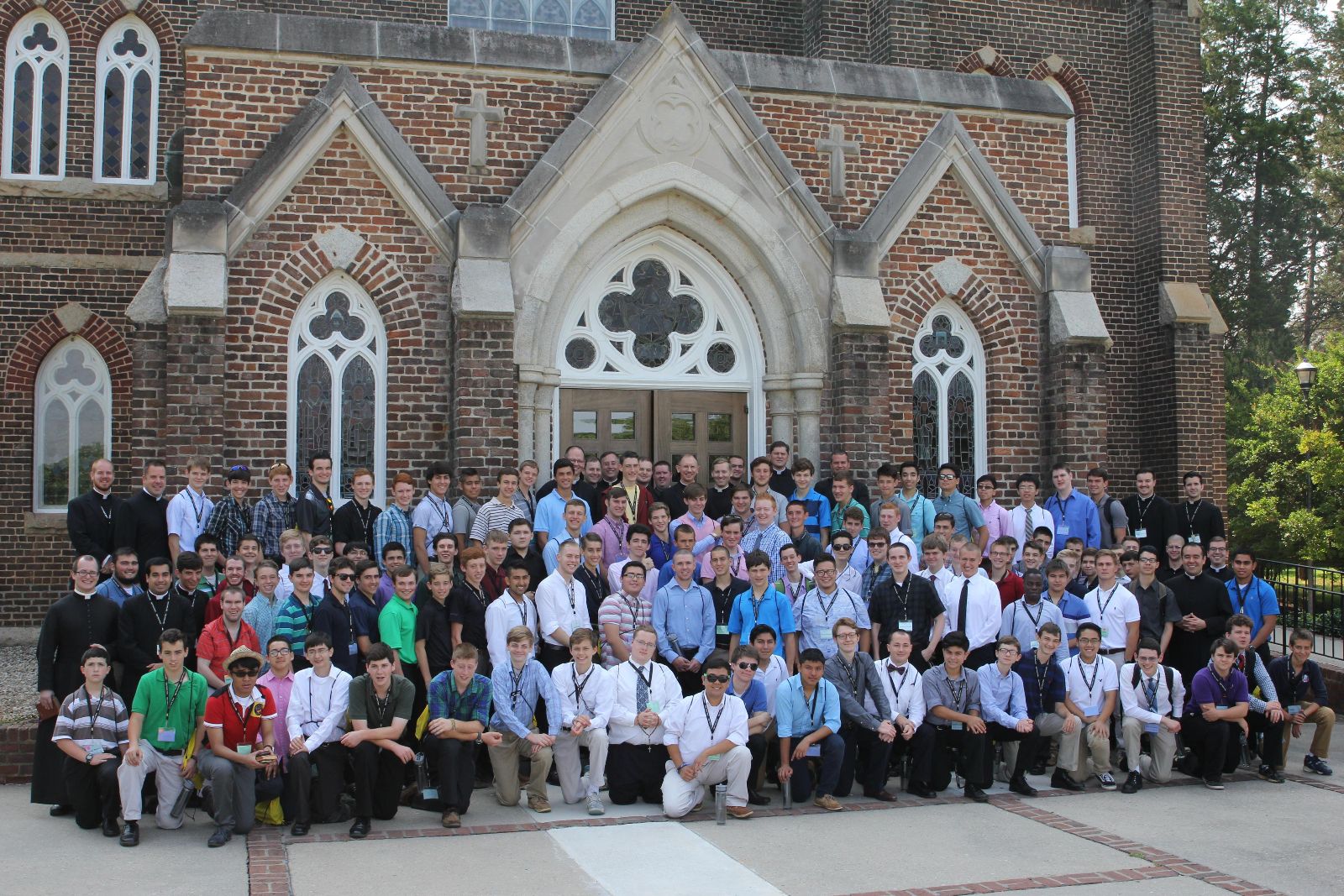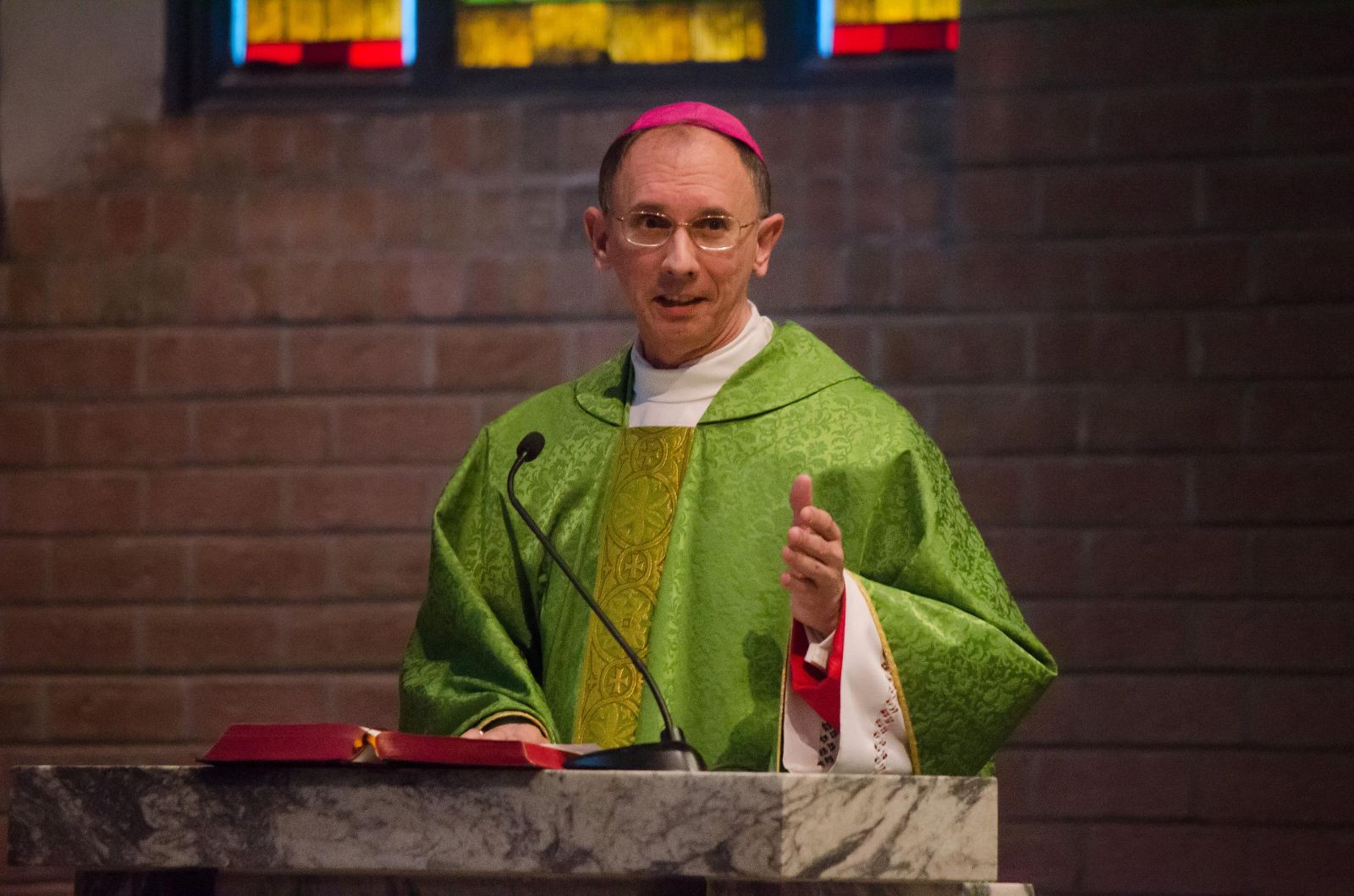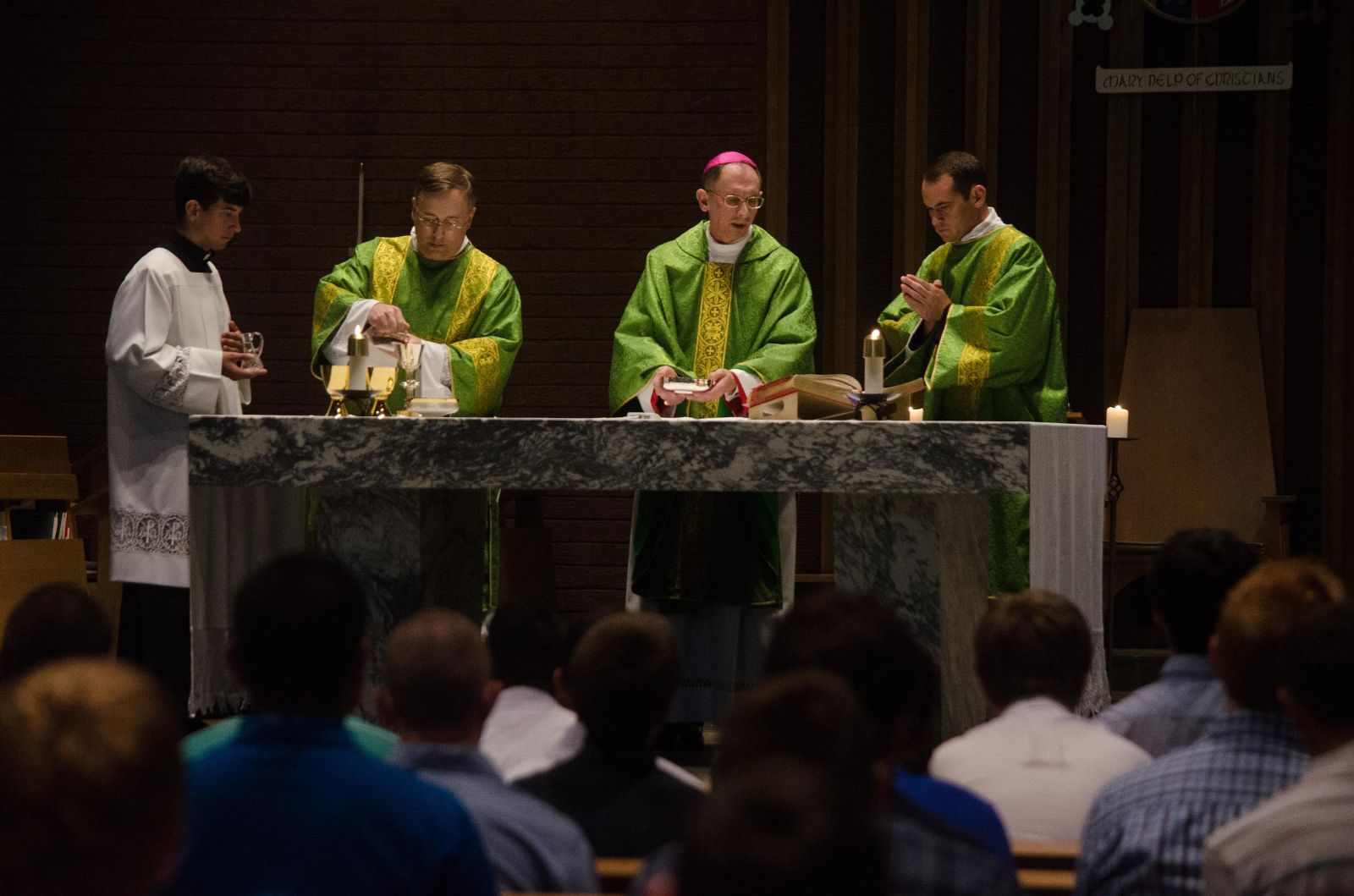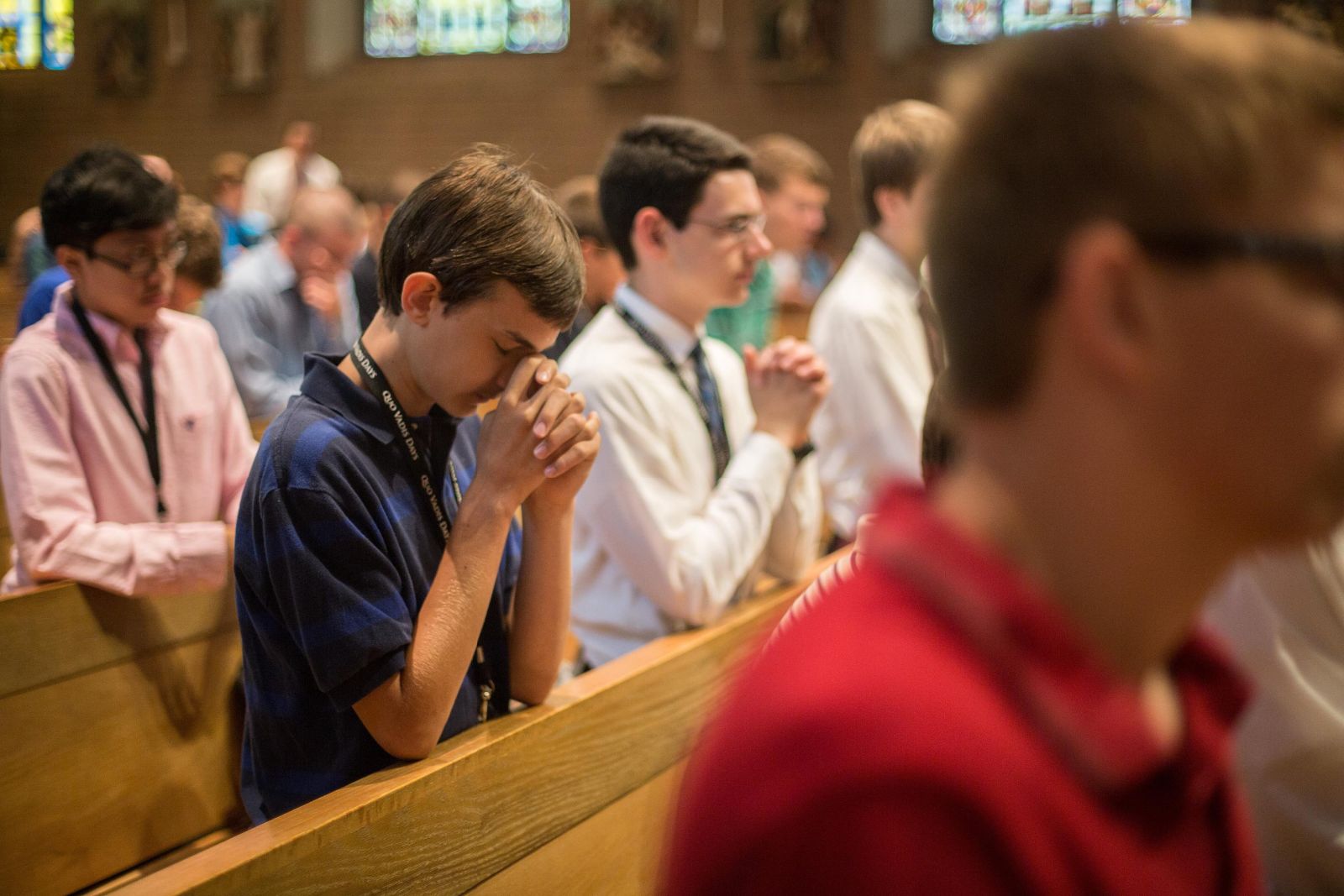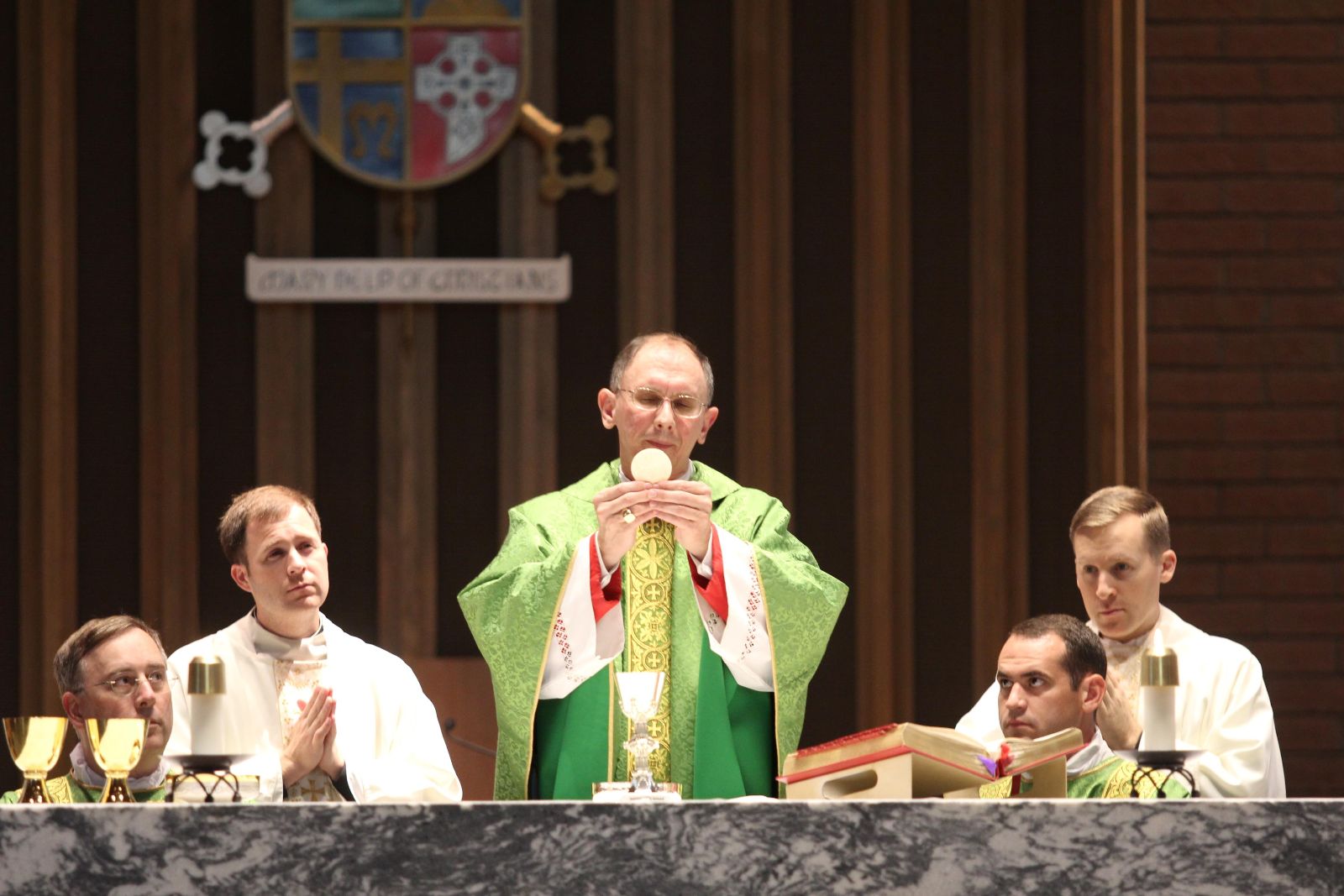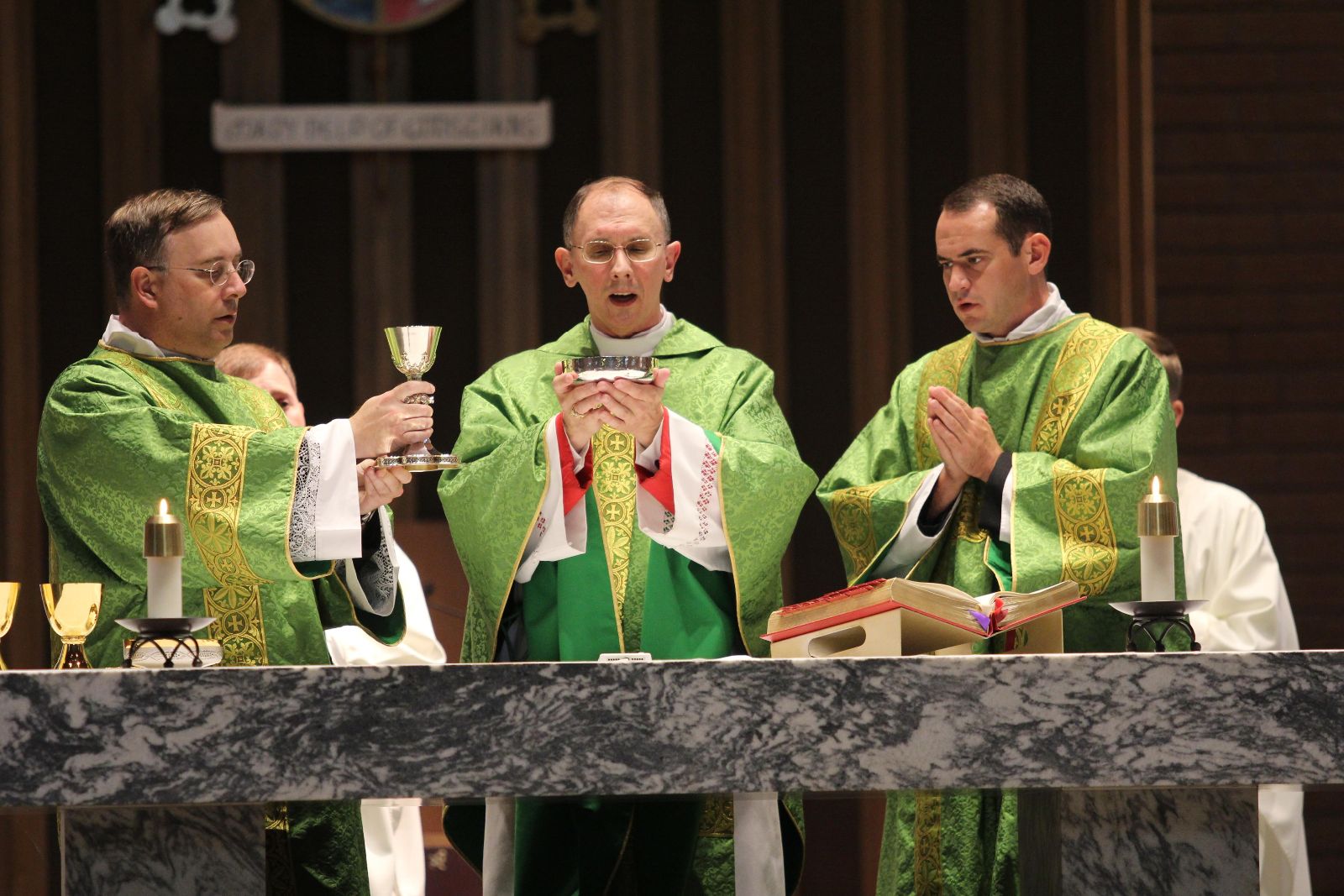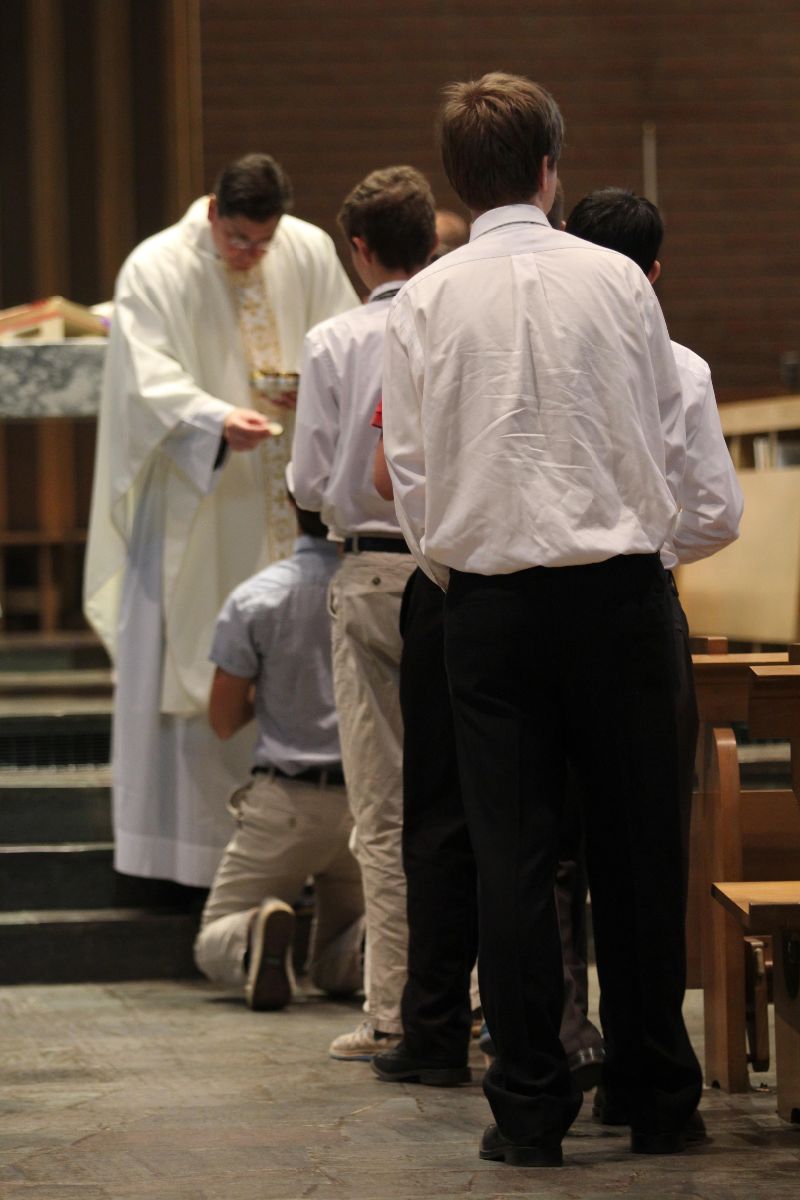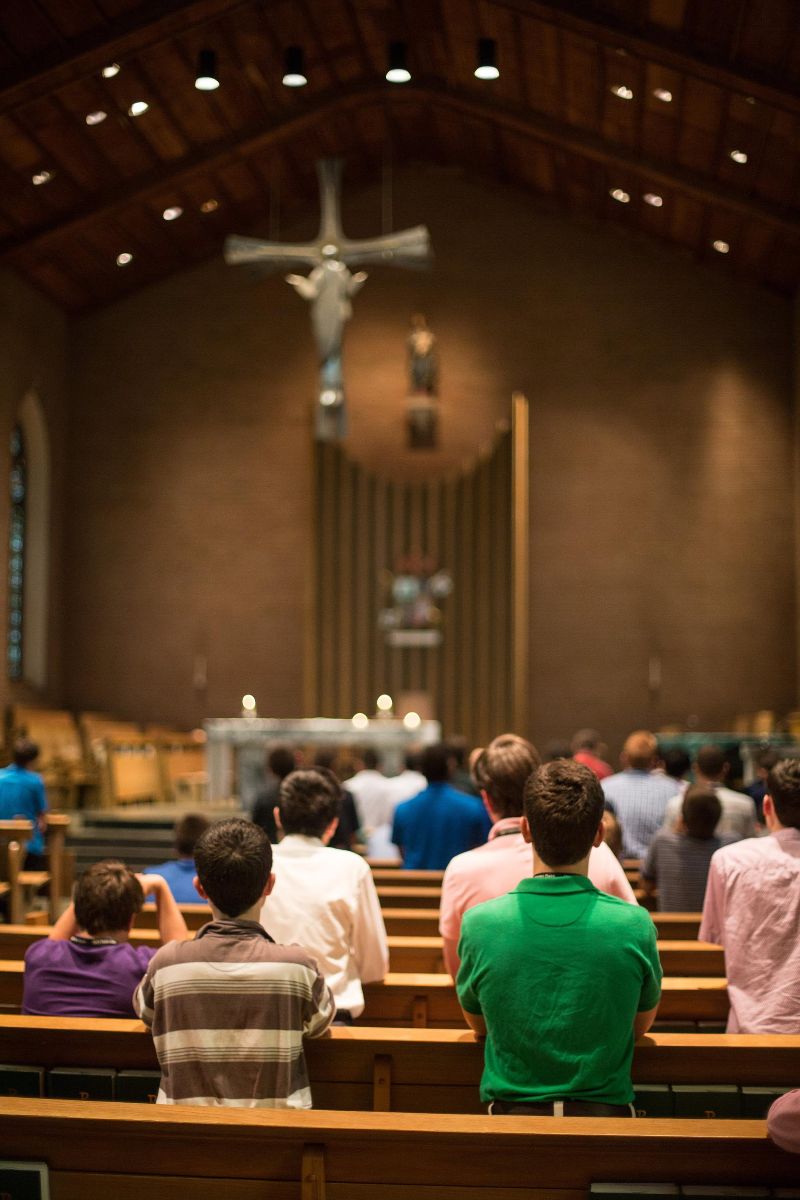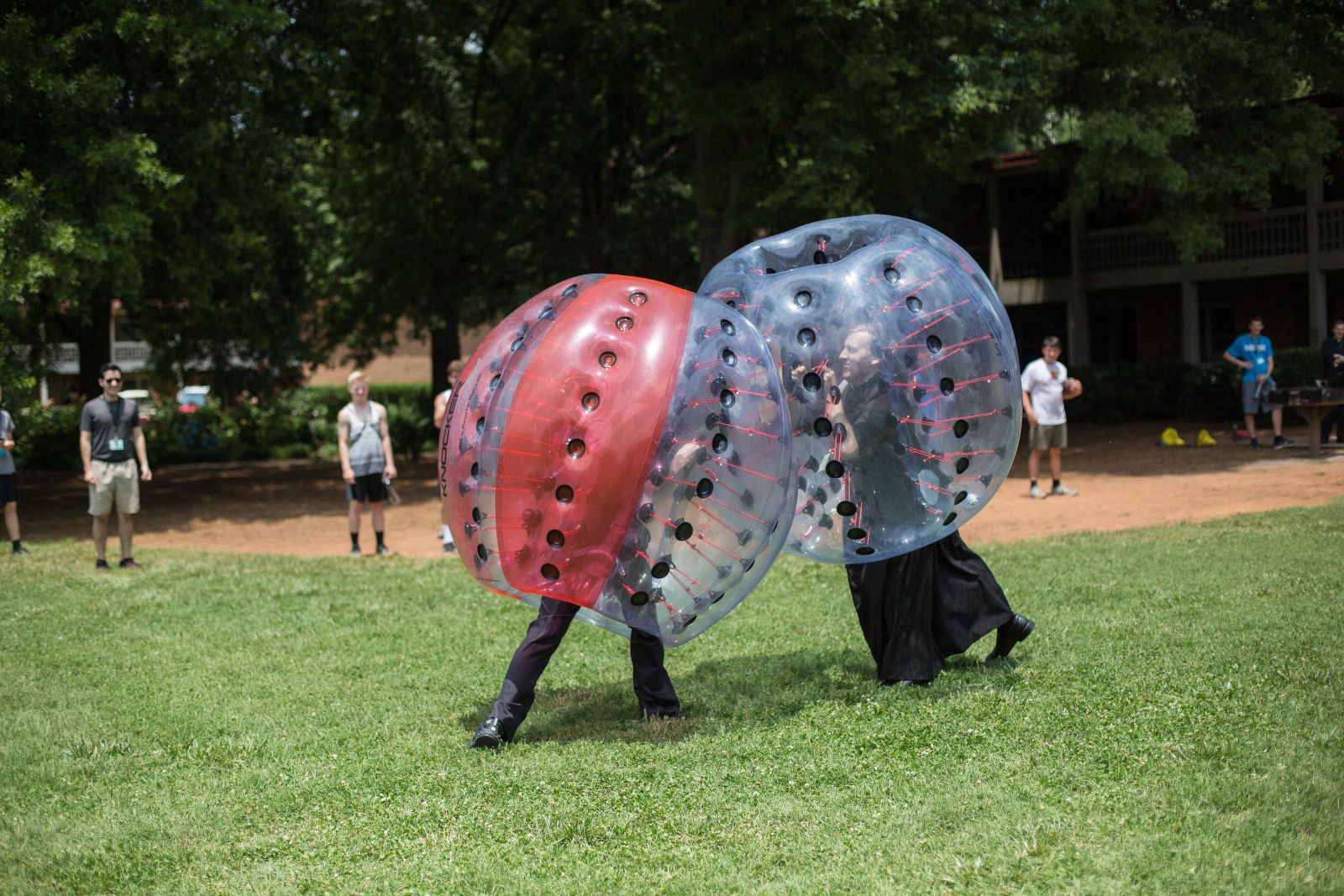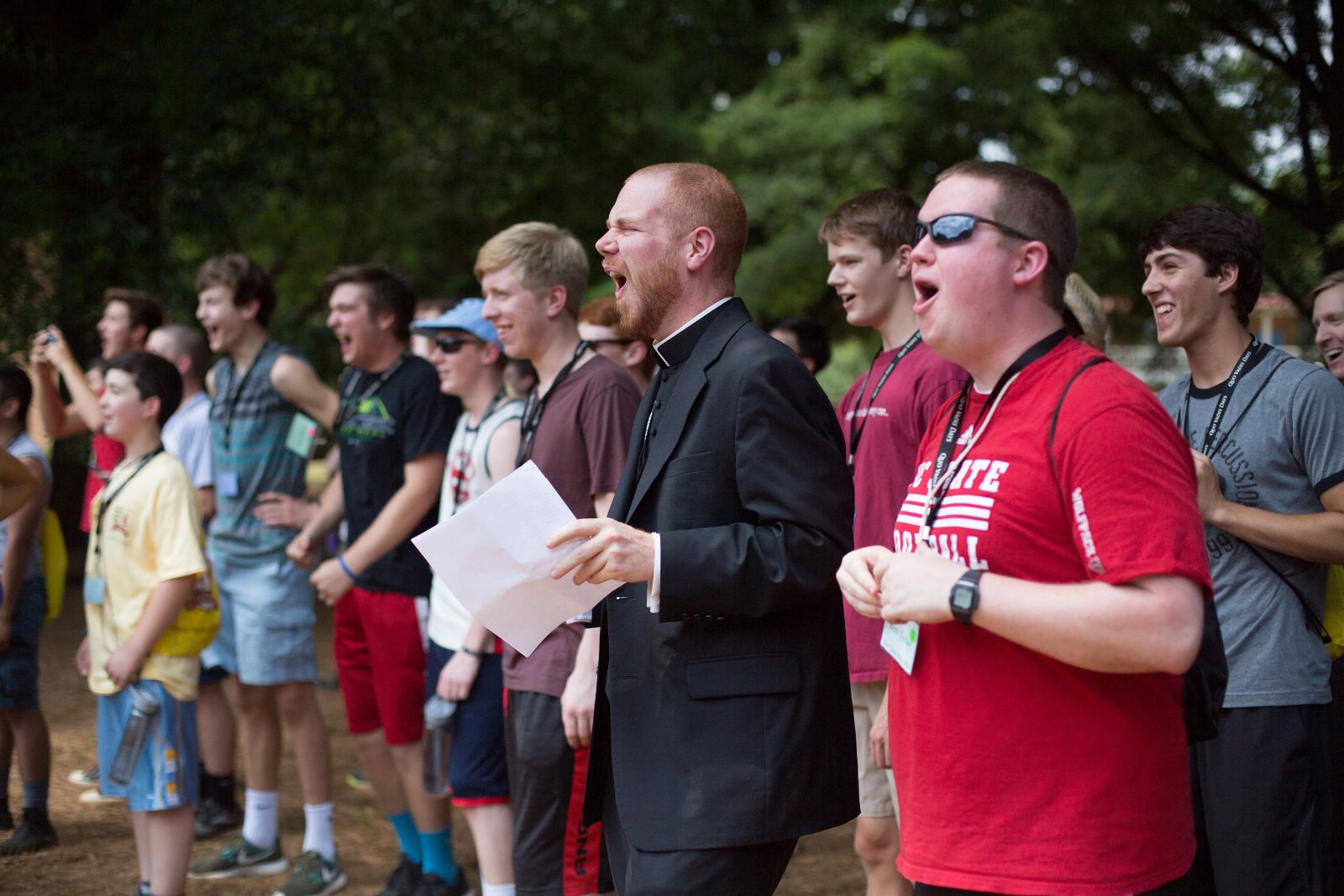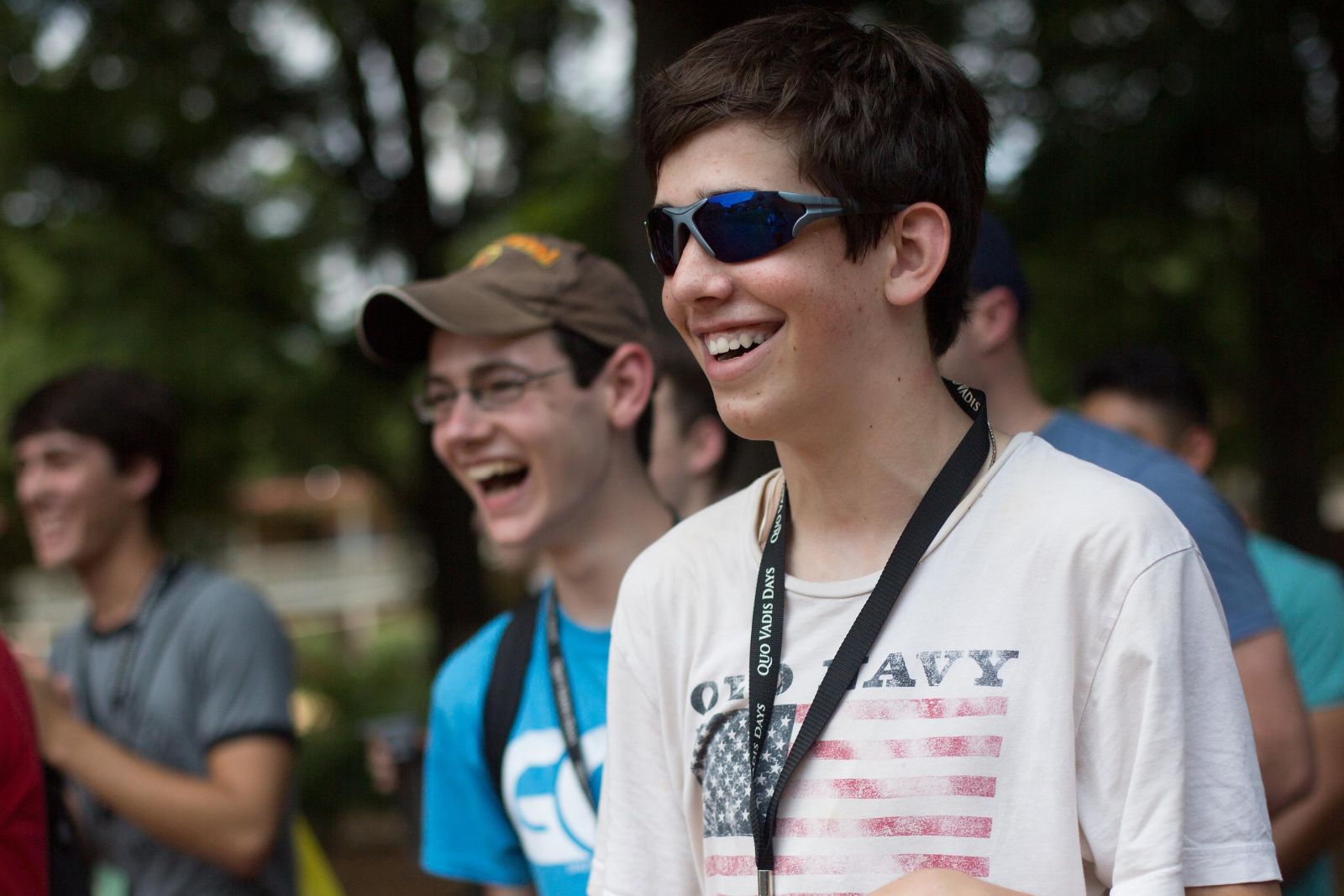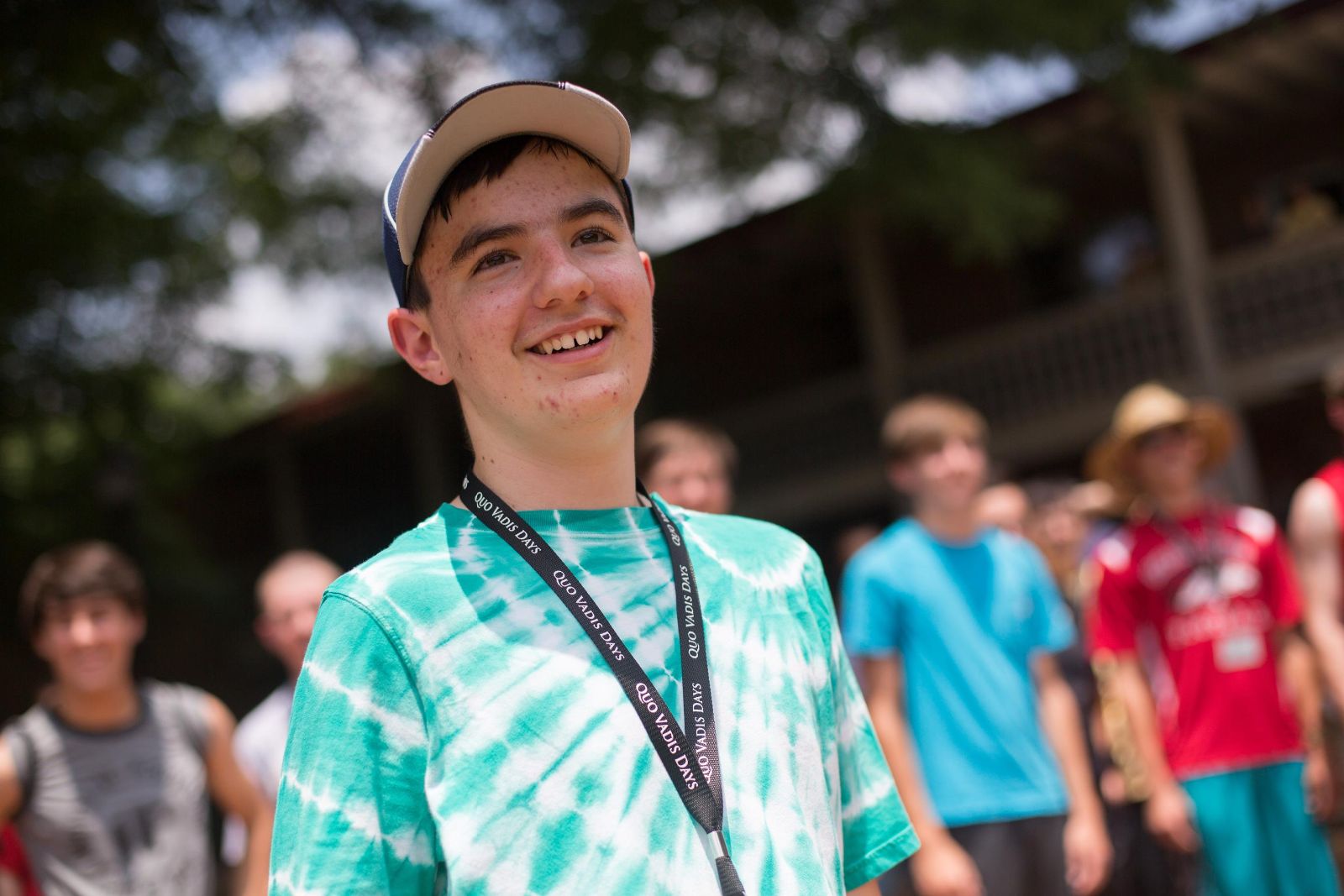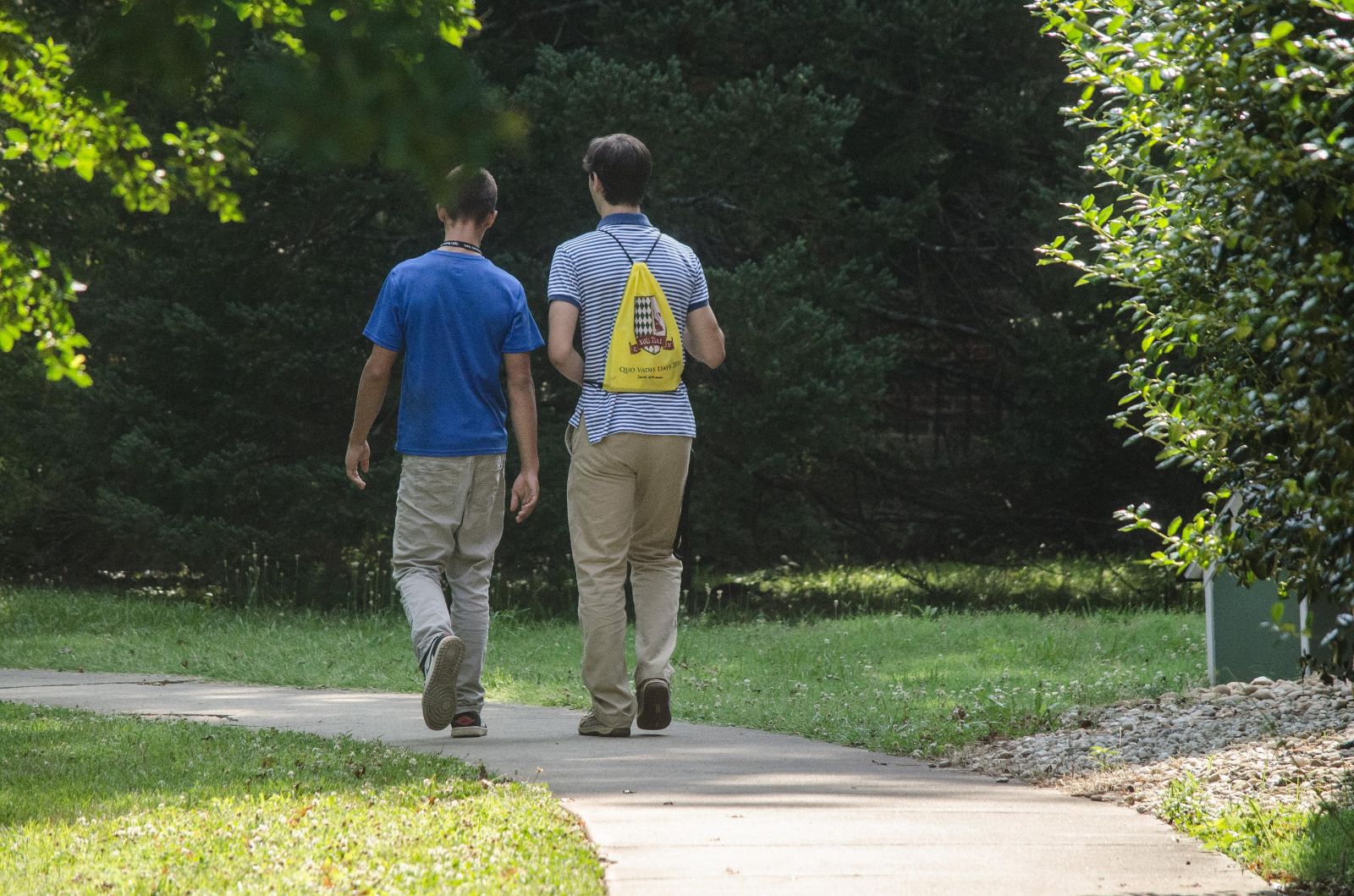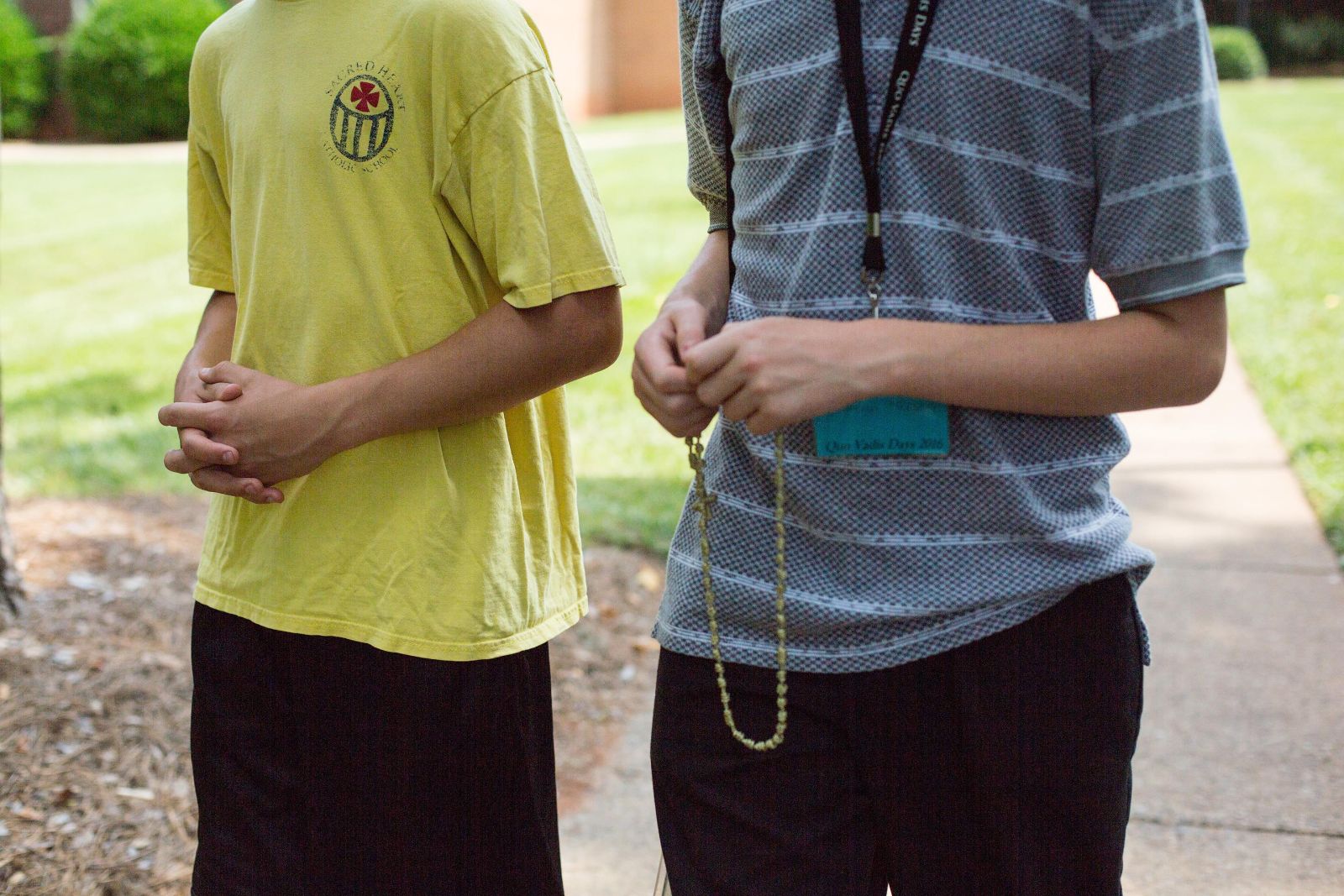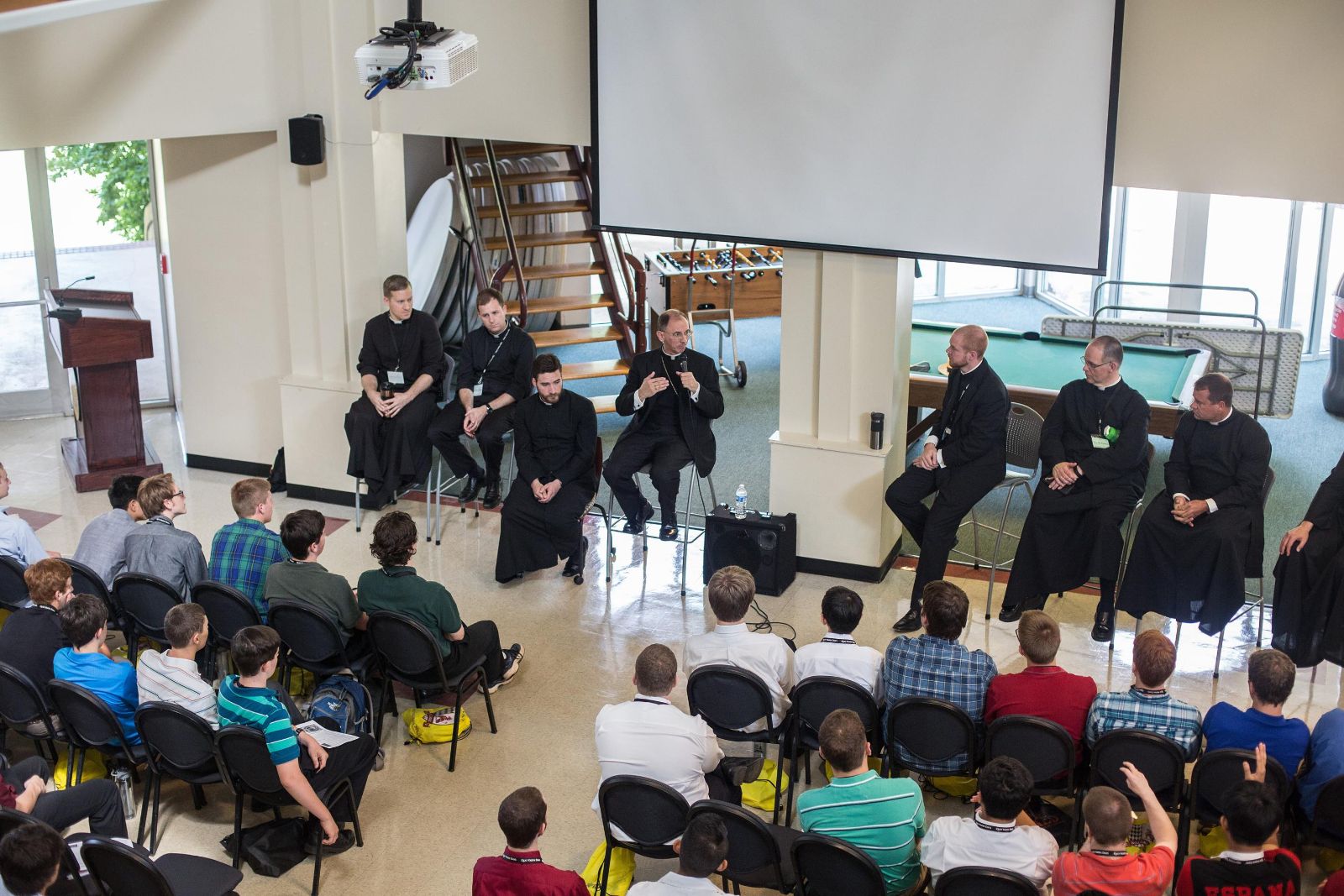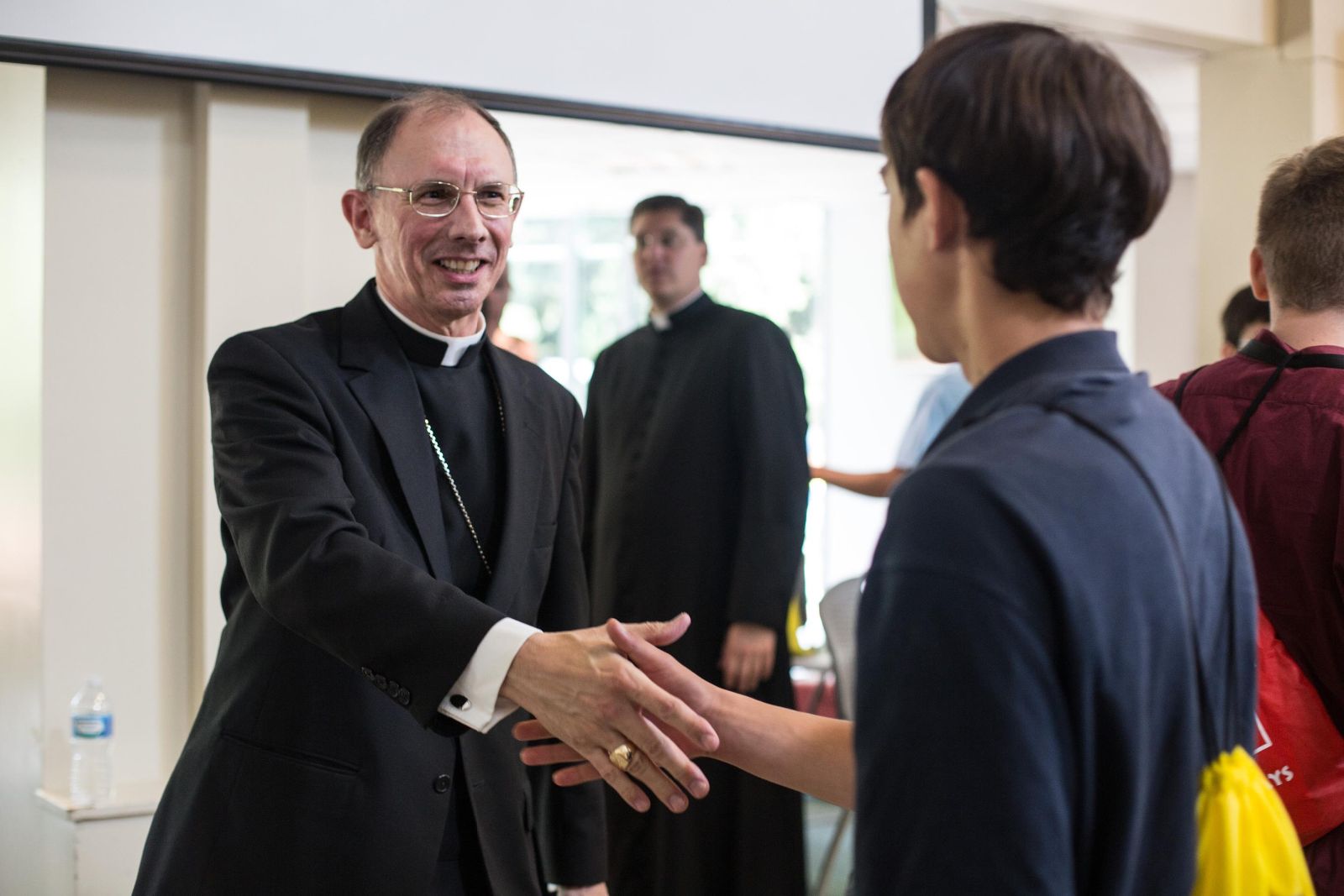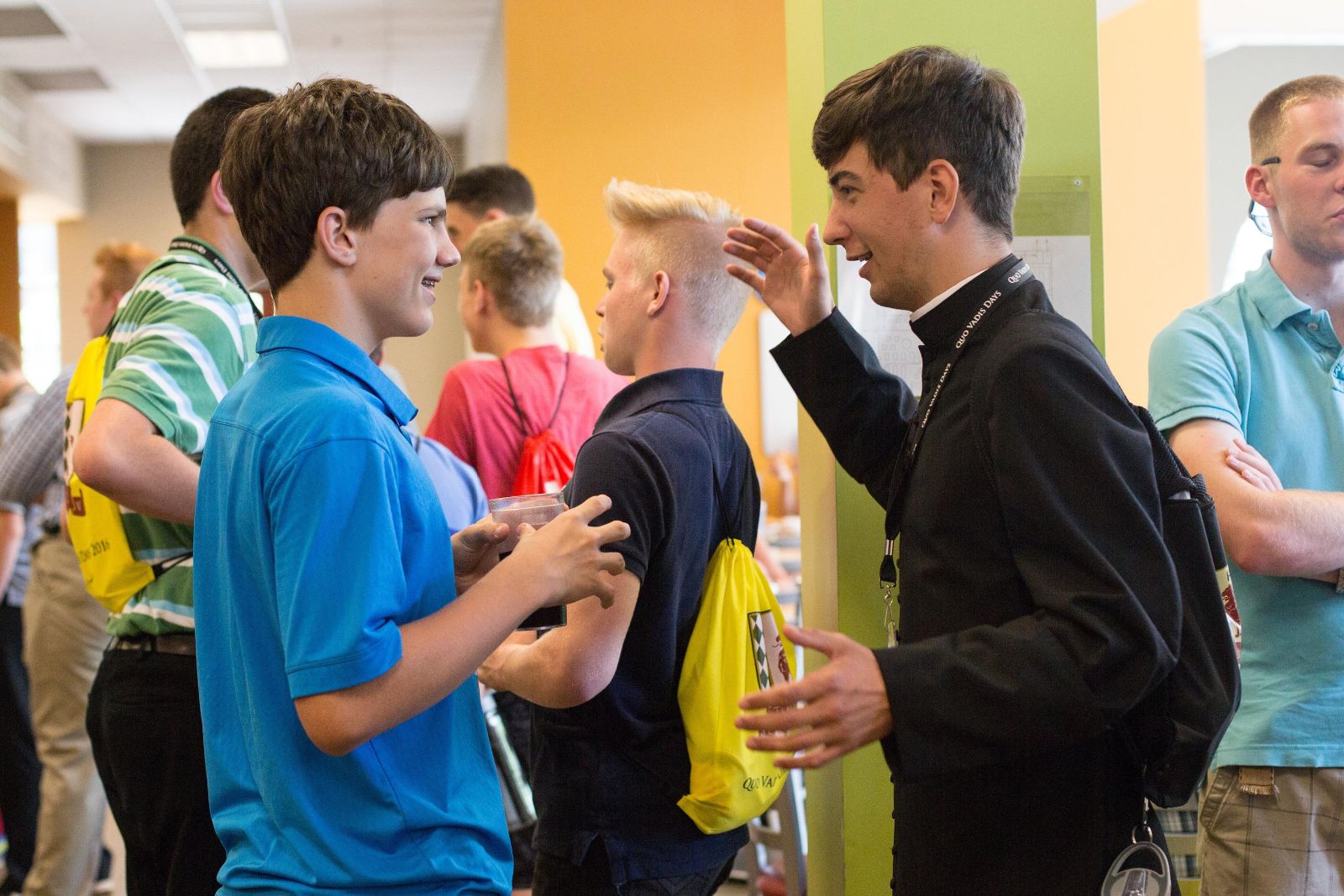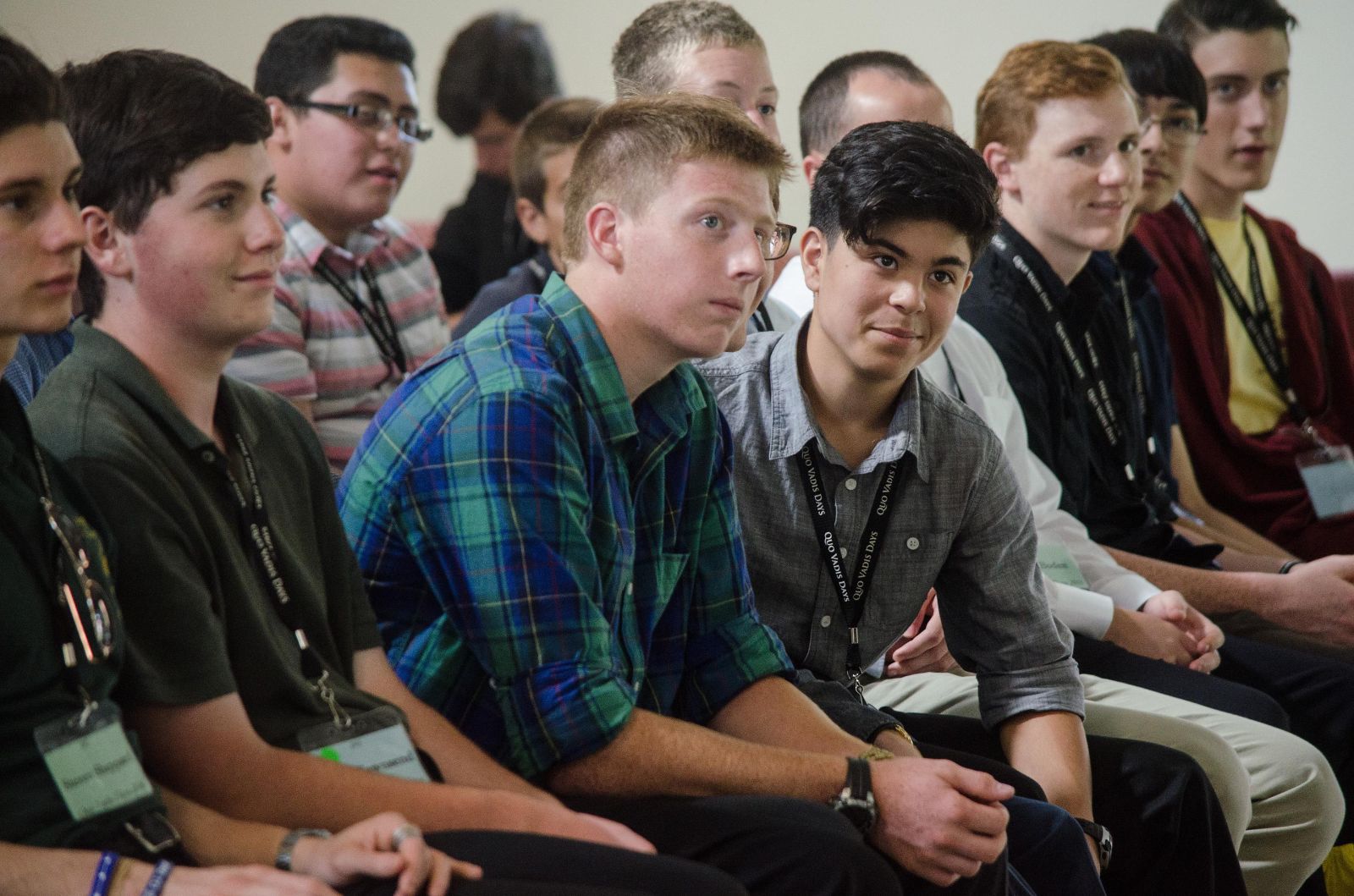CHARLOTTE — Father Joe Mulligan, a warm-hearted, gregarious priest with 40 years of ministering to people in the Diocese of Charlotte, is seldom at a loss for words. But a phone call one week ago left him speechless.
That phone call came from the Carolina Panthers' director of Player Engagement, Mark Carrier, who told Father Joe that the Panthers' Catholic players had chosen him to go to Super Bowl 50 as their chaplain. Carrier said, the players were inviting Father Joe to accompany them on their historic trip to the Big Game in Santa Clara, California, and would Father Joe like to go?
Father Mulligan replied, "It's a good thing I'm sitting down. As a person that usually has a lot of things to say, I'm just filled with gratitude and overjoyed to be able to go."
"That was as much as I could get out," he recalls.
A Philadelphia native of Irish descent, Father Joe has ministered to the Catholic families in the Panthers organization since the team joined the NFL and played their first pre-season game in 1995. Once among several Catholic chaplains who rotated in serving the team, Father Joe has served as the permanent Catholic chaplain since 2013. He offers Mass for them, ministers to their families and prays for them.
Father Mulligan says he celebrates Mass before every home game for about half a dozen Catholic players, including team captains Greg Olsen, Luke Kuechly and Ryan Kalil; some of the coaches; the team's trainer and assistant trainer; and some of their family members.
"Occasionally, during the pre-season games, the Mass is at the stadium, but most of the time it's a Mass at the hotel where they convene the night before a regular home game," he explains.
"I do all the pre-season games and all the home games – playoff games and everything. And, of course, the last three years they've been in the playoffs, so my presence and their success has coincided," Father Mulligan quips.
Father Joe has ministered in the Charlotte diocese since his ordination in 1975. Last year he celebrated his 40th anniversary of priestly ordination. Besides his work with the Panthers, Father Joe serves in hospital ministry as a chaplain at Carolinas Medical Center in Charlotte, and he helps out at Queen of the Apostles Church in Belmont for Father Frank Cancro, pastor, when needed.
 The priest credits All-Pro tight end Olsen as the catalyst for being invited to the Super Bowl with the team. "Nobody has said to me that they (the players) actually took a vote or something. But I'm sure there was some sort of 'we would like to have the Catholic Mass, so let's invite Father Joe.' And Greg Olsen probably spoke up and said 'I'll take care of it,'" Father Mulligan speculates. "(Olsen) is one of the team captains and that's the kind of guy he is."
The priest credits All-Pro tight end Olsen as the catalyst for being invited to the Super Bowl with the team. "Nobody has said to me that they (the players) actually took a vote or something. But I'm sure there was some sort of 'we would like to have the Catholic Mass, so let's invite Father Joe.' And Greg Olsen probably spoke up and said 'I'll take care of it,'" Father Mulligan speculates. "(Olsen) is one of the team captains and that's the kind of guy he is."
Father Mulligan said he will travel to Santa Clara via a commercial airline Feb. 5 and will offer Mass for the players, coaching staff and family members on Super Bowl Sunday.
When asked how he plans to prepare the players for the big game, the chaplain says he does not deviate from the regular Mass readings.
Says Father Joe, "I follow along with the Scripture readings for the Mass of the day. So I want them to feel that we're in sync with the Church."
He adds, "I try to make it as pertinent to what's going in the Church. If it's Advent, we go through the Advent cycle."
Looking ahead to this Sunday's Gospel reading of Luke 5:1-11, Father Mulligan says this Sunday's Super Bowl will be an opportunity for the Carolina Panthers to "dig deeper."
This Sunday's Gospel "has to do with the Apostles fishing and casting a net, and they haven't caught anything. And Jesus says you have to 'cast your net,' 'lower your nets'... Lower your nets is an imagery of digging deeper," he explains.
"I'm going to apply the sense of lowering your nets and digging deeper as an image for what needs to happen if they're going to come out victorious, both in life and following Christ and in winning the Super Bowl."
— Rico De Silva, Hispanic Communications Reporter
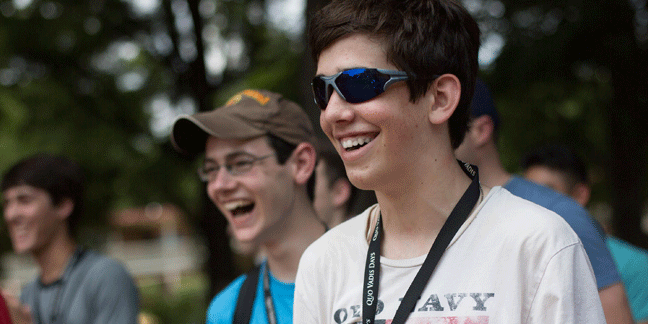 BELMONT — Bishop Peter Jugis told more than 100 young men on the Quo Vadis Days-Diocese of Charlotte retreat today at Mass at Belmont Abbey College that "God is the goal of your life. God is the focus of your life."
BELMONT — Bishop Peter Jugis told more than 100 young men on the Quo Vadis Days-Diocese of Charlotte retreat today at Mass at Belmont Abbey College that "God is the goal of your life. God is the focus of your life."
Our four new transitional deacons, several priests of the diocese and our soon to be ordained Deacon David McCanless were all present at Mass Wednesday morning.
Quo Vadis Days is a week-long vocations discernment camp for young men.
Please pray for all of our priests and seminarians and our young men discerning a vocation.
— Photos by SueAnn Howell and Lorenzo Pedro, Catholic News Herald


